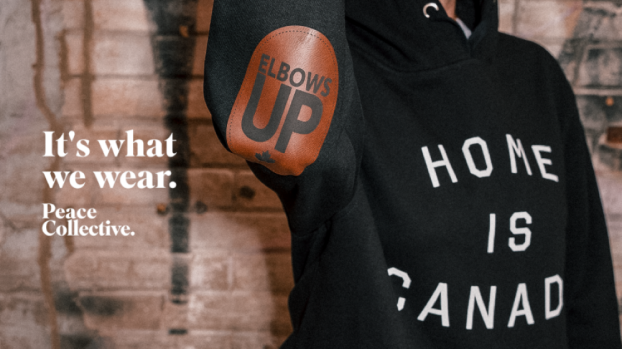In This Report
-Marketers lack sufficient
knowledge about other departments to work as a team, says Weston Stanbridge of KPMG 26
-Creativity training can give
marketers the winning edge,
says Patti Thompson of MICA 27
-York Downtown Management Centre offers spectrum of
short-term marketing courses 28
-New focus on practical casework and team exercises, says
Tracy Phillips of the Canadian
Management Centre 29
-Second City improv workshops help marketers think on their feet 30
A guy walks into an improvisational workshop for corporate employees run by a theatrical comedy troupe.
No punch-line.
No joke.
This marketing manager spends the day laughing and learning, and leaves more enthusiastic and more confident about his job and the people with whom he works.
For years, Toronto’s Second City had conducted improvisational workshops for aspiring actors.
The courses brought in money and allowed the artists to cultivate a pool of talent.
But Second City staff realized a growing number of businesspeople were taking the course – and they weren’t there to learn how to entertain.
They were there because they recognized that many of the improvisational techniques taught in the Second City workshops could be used effectively in the business environment, whether it was giving better proposals, or learning to work more effectively in teams.
‘We’d get people going through all six levels of our improvisational training with no desire to ever be on stage,’ says Nancy Marino, the producer at Second City.
‘We saw there was a real opportunity there,’ Marino says.
In 1992, Second City created abbreviated versions of its theatre-oriented workshops, specifically for businesspeople.
Hundreds of people – marketers and ad agency staff, among many others – have since benefited from the advice of experienced professional performers, in special workshops designed to improve everything from workplace relationships to sales pitches.
The workshops emphasize creative thinking, teamwork, listening skills, concentration, and confidence-building.
Before any workshop, Second City staff meet with the clients to develop a strategy.
‘Once we find out what goals you have, we’ll sit down and design a workshop specifically for your needs,’ says Rob Nickerson, one of four senior workshop instructors.
Exercises are selected from the hundreds they have developed for different purposes.
A common ice-breaking exercise, for example, is to get people to say their name while imitating a piece of living room furniture.
At one recent workshop a woman turned her head one way and said ‘Mary,’ and swung her head the other way and finished, ‘Lou,’ before explaining she was a sectional couch.
More advanced exercises tend to be variations on the theme of accepting the opportunities that present themselves during most interaction, replacing the negative ‘Yes, but’ approach with the more positive ‘Yes, and’ style.
This leads to participants accepting the ‘offers’ made by their co-workers, and eventually their clients.
For instance, in one exercise an offer takes the form of a physical pose. Once the pose is struck, it is up to another participant to take up the offer, and pose compatibly in response.
Another standard exercise is to let the group construct a narrative by taking turns adding to a lengthening story line, accepting the offer posed by the previous contributor.
If, during a workshop, it becomes apparent some less evident problem is not being addressed by the predetermined exercises, the instructors will alter the workshop on the fly.
‘I will improvise the improv class, and address any new needs that have arisen,’ Nickerson says.
But the workshops, as brief as they are, tend to go smoothly.
The role-playing and group work tend to break down barriers, not build them up, and activities that at first seem like party games are quickly recognized as opportunities to learn.
‘We can make your employees better equipped to deal with their jobs,’ Nickerson says. ‘We expand the framework of what they are capable of doing.’
Despite Second City’s reputation, and the stacks of testimonials the organization can offer businesses considering the workshops, there are, and always will be, people whose bowels weaken at the thought of performing in front of their co-workers, even if they realize that very quality makes them prime candidates for benefiting from the workshops.
‘A lot of our growth is inhibited by fear,’ Nickerson says.
He claims almost everyone is filled with some level of trepidation at the beginning of the day, but the workshop is designed to help people overcome those initial doubts.
‘Sure, it may seem daunting at first,’ he says. ‘But then suddenly everyone is laughing their ass off.’
Laurie Davis, vice-president of finance at 20/20 Funds, an Oakville, Ont.-based mutual fund investment group, says staff from across the company, including marketing, took the workshop to get to know each other better.
‘We had a lot of new managers,’ Davis says. ‘We wanted to have a program that would do some team-building.’
He says the experience was certainly fun, especially a self-explanatory ‘bum-tag’ game, but it also had a serious side.
‘It really did help us build trust, and in many ways taught us how to work together,’ Davis says.
Another great benefit of the training is it gives practice in thinking quickly.
According to Davis, the workshop is useful for any industry in which people have to make decisions on the fly.























